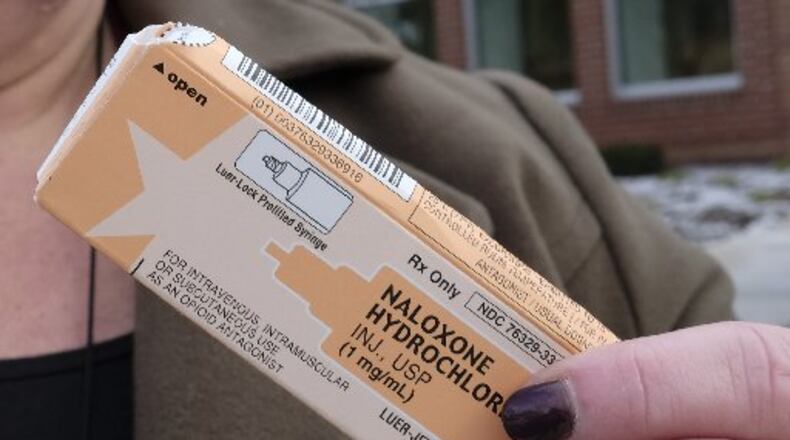So far, preliminary data indicates 306 people in the county died from accidental overdoses in 2020, compared to 285 deaths last year, 289 in 2018 and 566 in 2017.
Recovery is a lifetime process, said Karen Via, East End Community Services manager of Health, Safety and Prevention Initiatives. That can involve everything from maintaining employment to getting safe housing to child custody to transportation. Work still needs to be done in supporting people in recovery after treatment, she said, and, while she can’t say for certain, she believes that could be contributing to the overdose death increases.
“I’m going to guess some of the overdose increase we’ve seen has to do so much with COVID, with emotions as high have they’ve been,” Via said. “But then also the fact that recovery is a long-term process, and we may not be able to have the resources right now in place, because of everything that was happening in the community.”
East End is spending down the last dollars on a discontinued grant for a peer support service for connecting women to others who have walked in their shoes. Via said they haven’t lost anyone in their peer support program to an overdose, but they have seen women with significant needs during this time.
“As overdoses have risen during the pandemic, we encourage people who are struggling to reach out for help,” said Helen Jones-Kelley, executive director of Montgomery County Alcohol, Drug, Addiction and Mental Health Services.
Around Ohio, 19 counties have set or equaled records for the most overdose deaths in a year and this mortality data is preliminary and only partially complete, Harm Reduction Ohio reported on Dec. 17. The nonprofit pushes for ways to reduce harms of substance use and drug policies.
The 19 counties are not in the Miami Valley and mostly in the east and southeast parts of the state.
“In a bit of good news, Montgomery County (Dayton) and the surrounding counties — which were at the center of overdose death in 2017 — are tracking at 40% below the devastating death levels of that carfentanil-driven overdose surge,” Harm Reduction Ohio stated.
Nationwide, over 81,000 drug overdose deaths occurred in the 12 months ending in May 2020, the highest number of overdose deaths ever recorded in a 12-month period, according to the provisional Centers for Disease Control and Prevention data published Dec. 17.
While overdose deaths were already increasing in the months preceding the pandemic, the CDC stated the latest numbers suggest an acceleration of overdose deaths during the pandemic.
“The disruption to daily life due to the COVID-19 pandemic has hit those with substance use disorder hard,” CDC Director Robert Redfield said in a statement. “As we continue the fight to end this pandemic, it’s important to not lose sight of different groups being affected in other ways. We need to take care of people suffering from unintended consequences.”
How to get help
To find local service providers for addiction, rehab, mental health and more in Montgomery County, download the GetHelpNow interactive directory to find a facility near you. You can find it in the app store on your phone or go to gethelpnowmc.com to click “access for free.”
To reach the Crisis Text Line, text the keyword “4hope” to 741 741 to be connected to a trained crisis counselor within 5 minutes.
For Montgomery County 24/7 crisis care, call Samaritan Behavioral Health at 937-224-4646.
If having an emergency, call 911.
The Miami Valley Warmline is (937) 528-7777 for free, confidential mental and behavioral health assistance 11 a.m. – 7 p.m. Monday to Friday.
Families of Addicts educates, empowers and embraces families, friends and people struggling with addiction. Meetings moved virtual during the pandemic and more information is at facebook.com/FOAfamilies or foafamilies.org.
About the Author

